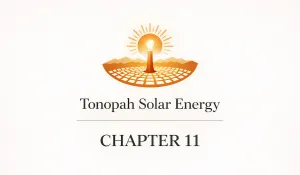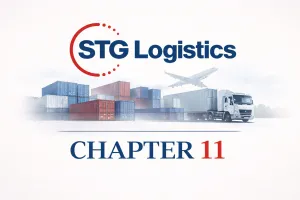Case Summary: Catona Climate Chapter 11
Catona Climate (fka Aspiration) has filed for Chapter 11 bankruptcy amid legacy liabilities and a liquidity crisis triggered by halted founder funding, planning a 363 sale with DIP support.
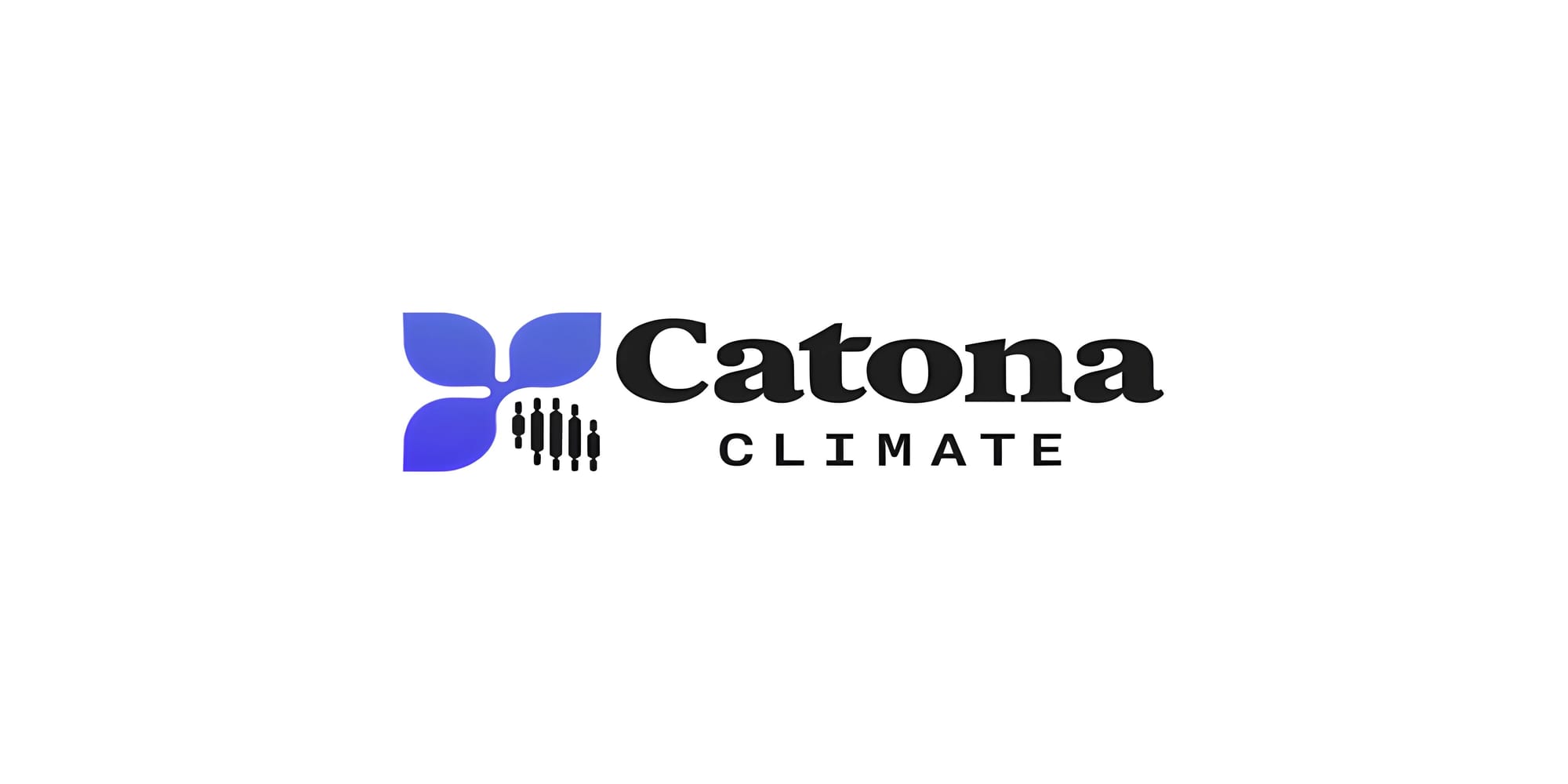
Business Description
Headquartered in Marina Del Rey, CA, CTN Holdings, Inc. (dba Catona Climate; fka Aspiration Partners, Inc. "Aspiration"), along with its Debtor⁽¹⁾ and non-Debtor affiliates (collectively "Catona" or the "Company"), is a climate finance company focused on facilitating corporate climate action by channeling capital into high-quality carbon removal projects globally.
- The Company specializes in developing, financing, and managing nature-based carbon solutions, aiming to deliver verifiable carbon removal credits at scale while adhering to rigorous quality and integrity standards.
- Catona positions itself as an enabler of the transition to a net-zero future, bridging the gap between companies with decarbonization plans and a portfolio of carbon removal projects.
Catona offers innovative carbon delivery solutions tailored for large enterprise clients pursuing net-zero goals, including:
- Forward Offtake Agreements: Allowing corporates to pre-order future carbon removal credits at fixed prices, locking in supply and providing cost certainty (e.g., Tencent's 3 million tonne pre-order for 2027-2040 delivery).
- Flexible Payment & Portfolio Options: Enabling buyers to pay upon credit delivery, align purchases with budget cycles, and build diversified portfolios across project types and geographies.
- Embedded Climate Solutions: Integrating carbon offsets into third-party services, such as Deloitte’s GreenLight Solution for sustainability management, AI infrastructure emissions mitigation models, and consumer-facing brand platforms (e.g., Sonos).
The Company serves major corporations, particularly in the technology and energy sectors. Notable clients and partners include Meta (6.75 million tonnes purchased), Microsoft (350,000 tonnes offtake), ENGIE (5 million tonnes pre-ordered), Tencent (3 million tonnes pre-ordered), Salesforce, Societe Generale, Sonos, and Edison Energy.
- Catona differentiates itself by emphasizing the quality, additionality, co-benefits (community and biodiversity), and robust verification of its carbon credits, utilizing an "unmatched diligence" process.
- It operates as a member of industry groups like the International Emissions Trading Association (IETA) and the Business Alliance to Scale Climate Solutions.
The Debtors filed for Chapter 11 protection on March 30, 2025, in the U.S. Bankruptcy Court for the District of Delaware. As of the Petition Date, the Debtors reported $50 million to $100 million in assets and $100 million to $500 million in liabilities.
⁽¹⁾ For a complete list of debtor entities, see the Chapter 11 Debtors table.
Corporate History
Catona Climate's origins lie in Aspiration, founded in 2013 by Andrei Cherny and Joseph "Joe" Sanberg as a socially-conscious financial services startup offering fossil-fuel-free banking products.
- Early offerings included "pay-what-you-want" accounts, sustainable investment funds, and tools like the Aspiration Impact Measurement (AIM) score.
- While attracting users and celebrity endorsements (Leonardo DiCaprio, Robert Downey Jr.), the consumer banking side generated modest revenue. By 2020, selling carbon credits and tree-planting programs to businesses had become the dominant revenue stream (~70% of total revenue).
SPAC Ambitions and Strategic Pivot (2021-2023)
In August 2021, Aspiration announced a merger with SPAC InterPrivate III Financial Partners at a $2.3 billion valuation, aiming to raise over $400 million, supported by a $315 million equity commitment from Oaktree Capital Management and affiliates of Steve Ballmer.
The SPAC deal faced repeated delays and ultimately failed, officially terminating in August 2023. Issues included turbulent markets and scrutiny over Aspiration's revenue claims and non-binding corporate partnerships. Investigative reports later highlighted questionable deals that further eroded investor confidence.
Amidst the SPAC turmoil, leadership changed in October 2022: CEO Andrei Cherny was replaced by Olivia Albrecht (former Chief Sustainability Officer), who pivoted the Company fully towards corporate climate finance, pausing new consumer products.
Rebranding and Carbon Market Focus (2023-2024)
Between mid-2023 and April 2024, the Company formally separated its businesses: the corporate climate/ESG arm was rebranded as "Catona Climate" (under the legal entity CTN Holdings, Inc.), while the Aspiration consumer brand and IP were sold off in April 2024.
Chapter 11 Debtors

Corporate Structure
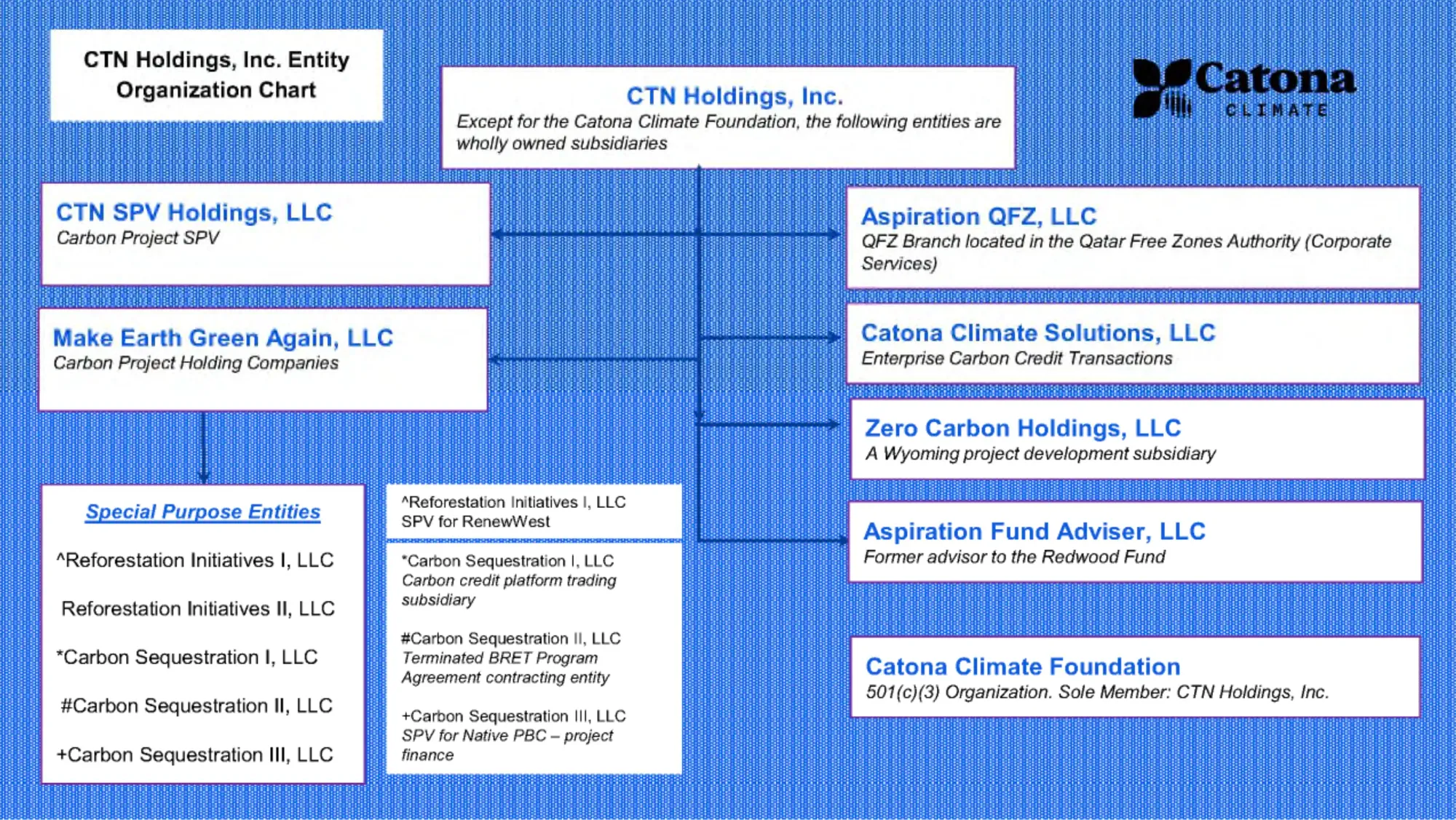
Major equity stakeholders pre-petition included OCM Aspiration Holdings, LLC (Oaktree Capital) at 23.3%, Clover Private Credit Opportunities II (11.9%), and BPCCInc., LLC (7.8%).
Operations Overview
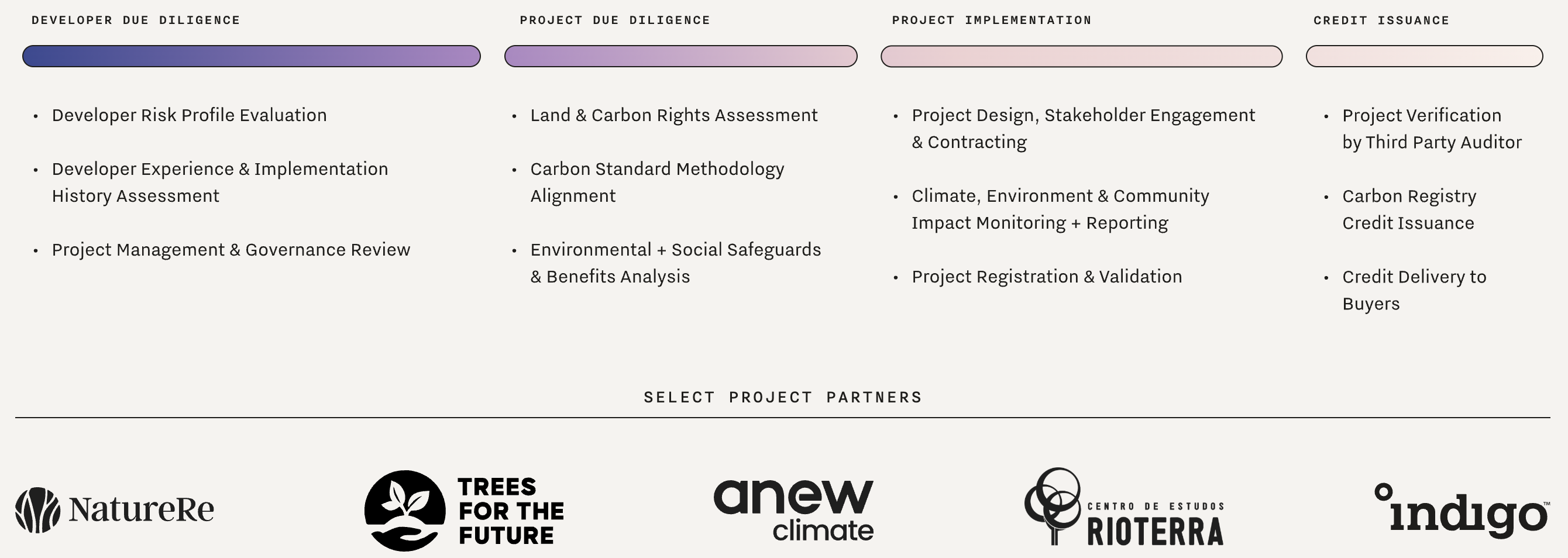
Catona Climate operates as a financier and intermediary in the carbon markets, connecting project developers with corporate buyers, rather than owning physical assets like land or forests.
- Project Sourcing & Investment: The Company identifies high-potential carbon removal projects globally, conducts due diligence, and provides "catalytic capital" (often in exchange for future carbon credit rights) or co-manages projects with local partners (e.g., Trees for the Future in Kenya).
- Carbon Credit Portfolio Management: Catona curates a pipeline of credits from diverse projects, aiming for over 100 million tons in volume. It emphasizes rigorous monitoring, verification (using standard registries like Verra or Gold Standard and technologies like bioacoustic monitoring), and quality criteria (additionality, permanence, co-benefits).
- Enterprise Sales & Partnerships: Catona contracts with corporations, often via multi-year offtake agreements secured years in advance of delivery, providing revenue certainty for project funding. Partnerships with consultants (Deloitte) and platforms expand client reach.
- Financing Model: Operations are funded through investor capital, upfront client payments for forward purchases, or potentially interim financing secured against future credit deliveries. The Company assumes price risk by offering fixed-price contracts.
Project Portfolio

Catona’s projects are globally distributed, with a significant focus on the Global South (e.g., agroforestry in Kenya, forestry in Uganda, projects in Argentina, Colombia, Brazil) where nature-based solutions offer high impact and community co-benefits.
Projects also include U.S.-based soil carbon initiatives (e.g., partnership with Indigo Ag for 250,000 credits).
The portfolio spans diverse types, aiming to minimize delivery risk:
- Nature-Based Solutions (Primary Focus): Reforestation/afforestation, agroforestry, avoided deforestation (potentially REDD+), soil carbon sequestration, possibly wetland/mangrove restoration ("blue carbon").
- Engineered Solutions: Expressed interest in supporting technologies like Direct Air Capture (DAC), though active projects were not detailed.
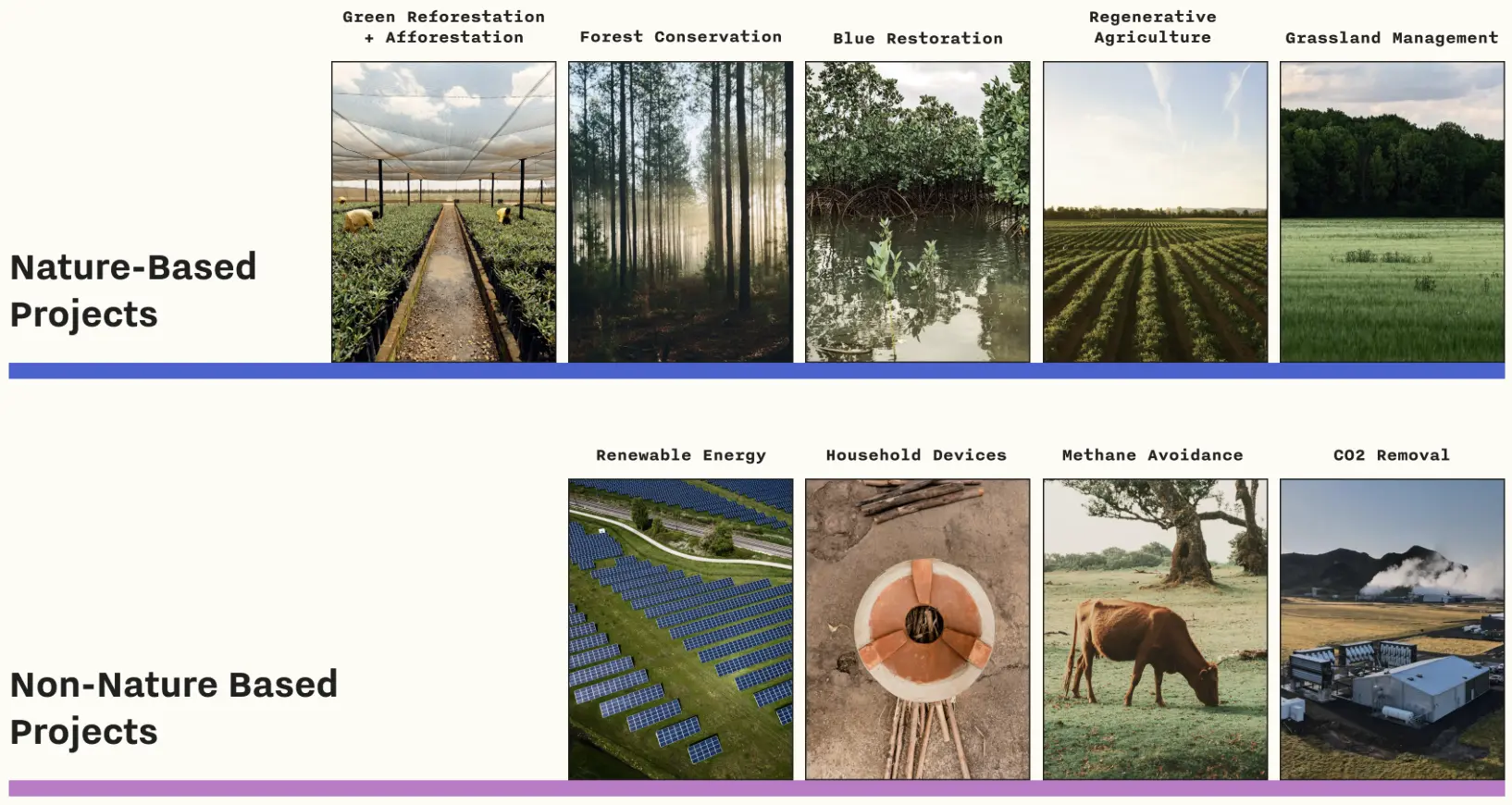
Workforce
Following restructurings, Catona operated with a lean team of approximately 25 specialists (as of the Petition Date). A Chief Restructuring Officer, Miles Staglik (CR3 Partners), was engaged prior to filing.
Prepetition Obligations

Top Unsecured Claims
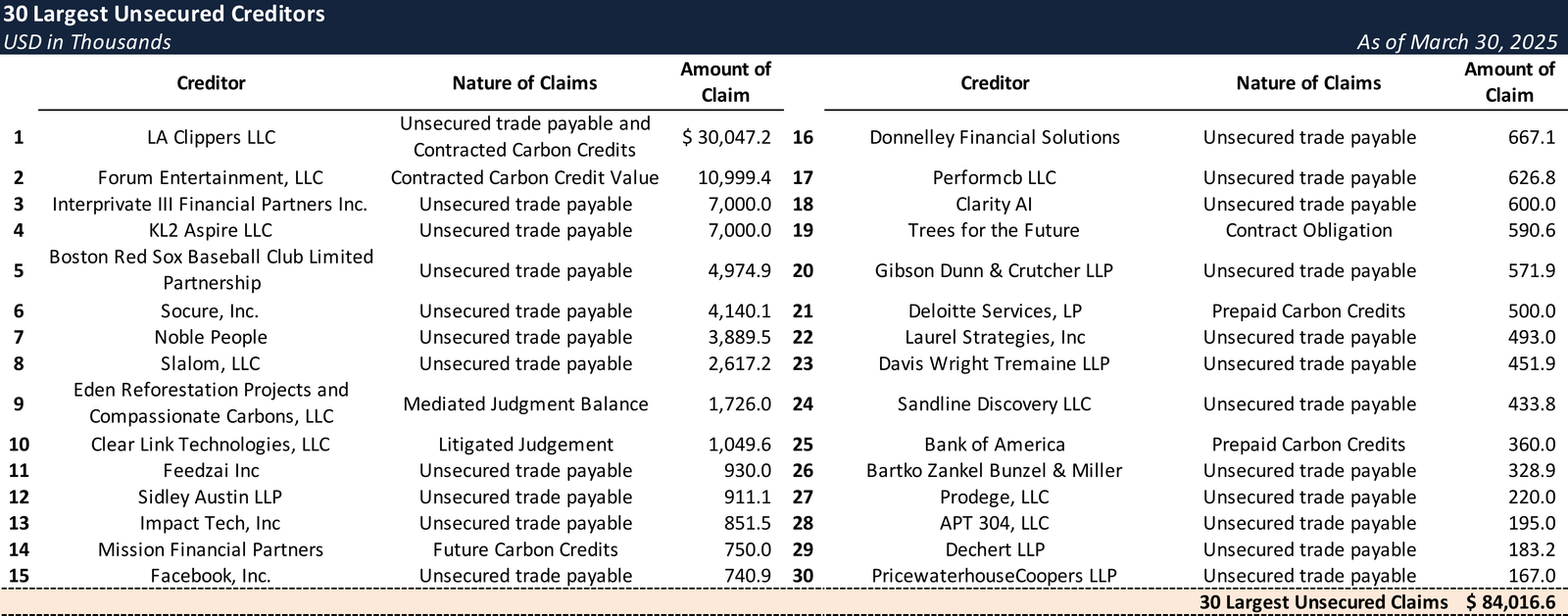
Events Leading to Bankruptcy
The Debtors' Chapter 11 filing resulted from escalating financial distress, legacy liabilities, loss of investor confidence, and critical funding disruptions exacerbated by legal and regulatory challenges tied to its predecessor, Aspiration, and its founders.
Financial Overextension and Failed SPAC
Aspiration's aggressive expansion (2019-2021), heavy marketing spend, and reliance on optimistic revenue projections created financial instability.
The termination of the $2.3 billion SPAC merger in August 2023 eliminated a crucial source of anticipated capital ($400M+), leaving the Company significantly underfunded after burning through prior investments.
Restructuring Efforts and Funding Shortfalls
The Company undertook drastic cost-cutting, including major layoffs in late 2022 and mid-2023, and rebranded its core business to Catona Climate.
Despite these efforts, Catona struggled to secure sufficient new financing throughout late 2023 and 2024, hampered by the general downturn in climate tech funding and its own damaged reputation.
The Debtors relied on capital infusions, principally from entities related to co-founder Joseph Sanberg. These infusions ceased in February 2025.
Regulatory Investigations and Litigation
DOJ and CFTC investigations launched in January 2024 into Aspiration's past carbon offset claims severely damaged Catona's credibility.
The Company faced lawsuits from partners and vendors over unpaid bills (e.g., Eden Reforestation Projects), further straining liquidity and operational reliability.
These legacy liabilities and litigation weighed heavily on the business, deterring potential investors and partners.
Founder Scandals and Funding Crisis
On February 28, 2025, the DOJ filed a criminal complaint against co-founder Joseph Sanberg related to personal conduct. Aspiration board member Ibrahim Alhusseini pleaded guilty in connection to the same scheme.
- While the Debtors assert they were victims and unaware of the conduct, the criminal proceedings "adversely impacted the Debtors’ ability to find replacement capital."
Following the cessation of Sanberg-related funding and the public scandal, Catona faced an immediate liquidity crisis, lacking funds for payroll and critical expenses by early March 2025.
Prepetition Financing and Chapter 11 Filing
On March 4, 2025, Catona informed prepetition secured noteholder Inherent Aspiration, LLC of its funding crisis.
Inherent Aspiration provided ~$1.2 million in emergency bridge financing between March 11 and March 25, 2025, intended as pre-DIP funding to cover payroll, retain bankruptcy counsel, and prepare for Chapter 11.
Efforts to secure alternative DIP financing from over ten lenders and thirteen existing investors were unsuccessful.
On March 30, 2025, CTN Holdings, Inc. and six affiliates filed for Chapter 11 protection in Delaware (Case No. 25-10603).
Proposed Path Forward: Section 363 Sale and DIP Financing
The Debtors entered Chapter 11 to pursue a value-maximizing sale of substantially all assets under Section 363 of the Bankruptcy Code, citing legacy liabilities and the need for significant capital and long timelines to realize value from contracts otherwise.
An expedited sale process is contemplated, with milestones aiming for sale consummation within 55 days of the Petition Date.
To fund operations and the sale process, the Debtors secured access to a DIP financing facility from Inherent Aspiration, LLC (the “DIP Lender”) for up to $18 million in aggregate principal, as authorized by an Interim Order entered on April 3, 2025.
- The facility includes $4.2 million in new-money financing, with $2.2 million available upon entry of the Interim Order and $2 million available upon entry of the Final Order.
- In addition, the DIP Facility provides for the roll-up of approximately $13.8 million in prepetition secured note obligations held by the DIP Lender and its affiliates—$1.2 million rolled up upon entry of the Interim Order, and $12.6 million upon entry of the Final Order.
- The Debtors state that they are reliant on the DIP Facility to fund operations, as they do not anticipate significant cash inflows during the Chapter 11 cases due to the nature of their long-term contracts.
Initial DIP Budget

Stay informed on every Chapter 11 bankruptcy case with liabilities exceeding $10 million. Subscribe for free to have our coverage delivered directly to your inbox, and explore our full archive of past summaries.
If you're already a subscriber and would like to receive timely filing alerts, please reach out and we'll add you to the distribution list.
